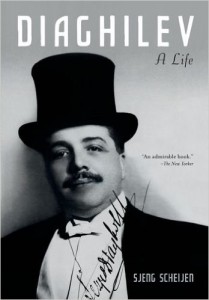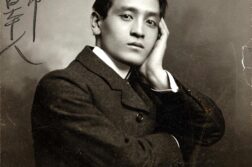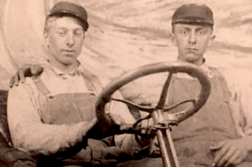 Diaghilev: A Life
Diaghilev: A Life
by Sjeng Scheijen
Oxford University Press
552 pages, $29.95
HOW DOES one tell the story of Sergey Pavlovich Diaghilev, the impresario whose artistic accomplishments over three decades beginning at the turn of the 20th century seem to surpass what is humanly possible? How did this homosexual Russian émigré who spent the majority of his life exiled in Europe do it?
From the beginning: the Diaghilev family was part of the Russian landed nobility, thanks to Sergey’s business-savvy grandfather, Pavel Dmitriyevich, who acquired a monopoly on vodka distilleries near the family manor in Perm. They also had an estate in Bikbarda, about 190 miles away, and worked their way up the social ladder after attaining a residence in cosmopolitan St. Petersburg. Sergey was born on March 19, 1872, in the Russian village of Selishchi, a province of Novgorod. Later, the story would take hold—ostensibly started by Diaghilev himself—that little Sergey’s oversized head caused the death of his mother in childbirth. A new biography by Sjeng Scheijen, Diaghilev: A Life, puts this legend to rest by showing that she died three months later, perhaps of puerperal fever, which was endemic in Europe at the time.
Over two years after the death of his mother, his father married Yelena Panayev, a woman from a prominent St. Petersburg family, who fully embraced young Sergey as her own. She doted on the boy, despite warnings from a family physician that his chronic inquisitiveness should be discouraged and met with silence. She was a perennial optimist, which may partly account for her stepson’s wealth of self-confidence. According to Sergey’s lifetime friend, Walter “Valechka” Nouvel, Yelena told young Sergey to forget the phrase “I can’t,” assuring him that “When people want to, they can.” Their relationship was to last until her death in 1919, tenderly documented by the copious correspondence they exchanged over many years.
The Diaghilevs were also a musical family.






